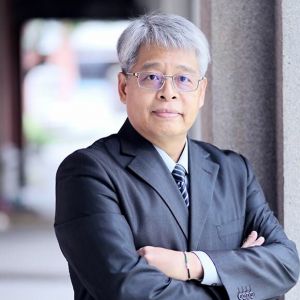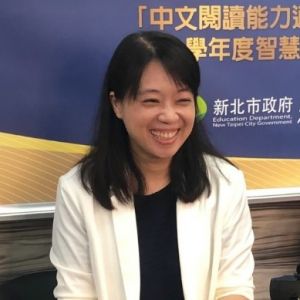The tidal force of globalization has pushed Taiwan into a pivotal position among the East-Asian developing regions, a joint between Northeast and Southeast Asia, and an island vitalized by both tradition and innovation. Riding the tide, College of International Studies and Social Sciences offers our students global perspectives and local practices.
The faculty of College of International Studies and Social Sciences are dedicated to raising the awareness and sensitivity of our students to the social and political issues that could affect their well-being as well as the well-being of the society as a whole. In doing so, the faculty consider it essential to bring a global/international perspective when they work together with the students on these issues. This means the acquisition of plurilingual and pluricultural competences by the students, which serve as their college exit standards. The competences can be defined by the World-Readiness Standards for Learning Languages identified by the American Council on The Teaching of Foreign Languages, which include Communication, Cultures, Connections, Comparisons, and Communities.
To ensure our students meet the exit standards, the College offers programs and courses in the areas of Chinese as a Second Language, East Asian Cultural and Political-Economic Studies, European Culture and Tourism, Social Work, Mass Communication, and International Human Resource Development.
Abundant Chinese language and culture courses at all levels, combined with courses to prepare students for global management and cross-cultural collaboration and opportunities for social practice, are specially designed for the foreign students in the College, who form one-fourth of the entire student body of the College as well as two thirds of all the foreign students enrolled in the University. We are proud to help these foreign students to become accustomed with the Chinese culture and society in Taiwan. At the same time, we appreciate their presence because they help co-construct the international/global perspective all of our students (foreign and native) need. Various foreign language courses are also available to our native students, including English, French, German, Spanish, Japanese, and Korean. English proficiency has been a required criterion for graduation, but learning an additional foreign language has also become increasingly popular among the native students.
Many institutions aim to educate their students to become leaders of the world. We believe to support is as important as to lead. We instead strive to encourage our students to be helpers in a team, in any way they see fit. As an example, through a partnership with the International Cooperation and Development Fund in Taiwan, students learn to assist in enhancing human resources in a range of developing countries.
The faculty of College of International Studies and Social Sciences are dedicated to raising the awareness and sensitivity of our students to the social and political issues that could affect their well-being as well as the well-being of the society as a whole. In doing so, the faculty consider it essential to bring a global/international perspective when they work together with the students on these issues. This means the acquisition of plurilingual and pluricultural competences by the students, which serve as their college exit standards. The competences can be defined by the World-Readiness Standards for Learning Languages identified by the American Council on The Teaching of Foreign Languages, which include Communication, Cultures, Connections, Comparisons, and Communities.
To ensure our students meet the exit standards, the College offers programs and courses in the areas of Chinese as a Second Language, East Asian Cultural and Political-Economic Studies, European Culture and Tourism, Social Work, Mass Communication, and International Human Resource Development.
Abundant Chinese language and culture courses at all levels, combined with courses to prepare students for global management and cross-cultural collaboration and opportunities for social practice, are specially designed for the foreign students in the College, who form one-fourth of the entire student body of the College as well as two thirds of all the foreign students enrolled in the University. We are proud to help these foreign students to become accustomed with the Chinese culture and society in Taiwan. At the same time, we appreciate their presence because they help co-construct the international/global perspective all of our students (foreign and native) need. Various foreign language courses are also available to our native students, including English, French, German, Spanish, Japanese, and Korean. English proficiency has been a required criterion for graduation, but learning an additional foreign language has also become increasingly popular among the native students.
Many institutions aim to educate their students to become leaders of the world. We believe to support is as important as to lead. We instead strive to encourage our students to be helpers in a team, in any way they see fit. As an example, through a partnership with the International Cooperation and Development Fund in Taiwan, students learn to assist in enhancing human resources in a range of developing countries.










